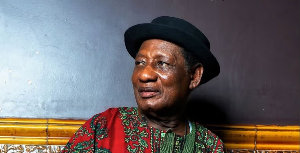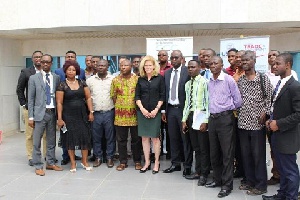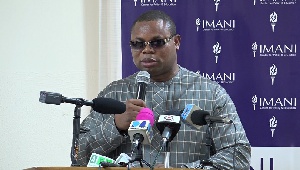Mr Mark Badu-Aboagye, the Chief Executive Officer (CEO) of the Ghana National Chamber of Commerce (GNCC), says Ghana is yet to fully utilise the African Growth Opportunity Act (AGOA) trade agreement.
This, he said was due to limited understanding of US Customs and regulatory requirements.
He noted at 7th AGOA Technical Workshop organised by the GNCC and the USAID West Africa Trade and Investment Hub in Accra on Wednesday that: “The minimal utilisation of the AGOA trade initiative is due to limited information and lack of clarity, particularly on customs and regulations, in accessing the US market.”
The AGOA initiative provides the eligible countries in sub-Saharan Africa, including Ghana with duty-free access for exports of more than 6,400 products, into the US market.
He observed that the workshop, organised under the AGOA Trade Resource Centre, hosted by the GNCC, with a US customs and international Consultant as resource person, would help to increase Ghanaian exports to the US.
Mr Badu-Aboagye gave the assurance that there would be more training programmes to equip stakeholders and exporters in order for them to benefit from the AGOA initiative.
Ms Jan Forest, Customs and International Trade Attorney-US, took participants through the various requirements for exporting products into the US.
She indicated that the determinations required for entry include: classification, customs valuation; country of origin; and admissibility. Ms Forest expressed the need for exporters to correctly classify their exports.
She said incorrect classification of products could have adverse repercussions on other areas such as the values and duties applicable to the product.
“The country of origin must be eligible, product must be eligible. The product must be imported directly, and must meet requirements of origin rules in order to qualify for AGOA duty-free treatment,” she added.
Ms Forest said exporting to the US required exporters to provide all necessary information on invoice, mark and number packages in accord with invoice; detail description of merchandise, mark conspicuously and legibly with country of origin.
The exporters must also, among other things, comply with other requirements of other agencies such as the Food and Drugs Administration and the United States Department of Agriculture, depending on the type of product they export.
Mohamed Abou-iiana, Senior AGOA Specialist of the West Africa Trade and Investment Hub, said in order for Ghana to take full advantage of AGOA, there was the need to work on a number of fronts including quality and standards.
He said AGOA had a lot of benefits to offer in terms of exemptions, which other African countries like Kenya and Lesotho had taken advantage of, and encouraged Ghanaian exporters seeking information on how to benefit from the facility by visiting the AGOA Resource Centre in Accra for assistance.
Ms Adjo Asare, CEO of Alfie Designs, told the GNA that the workshop had been very useful in explaining the customs and other regulations for exports under AGOA. She said would take advantage of the programme to export her apparel to the US.
The West Africa Trade and Investment Hub increases the value and volume of West Africa’s exports by addressing challenges in intra-regional and export-oriented agricultural and value-added trade.
The Trade Hub supports agribusiness and apparel aims, at increasing food security and reduce poverty.
Business News of Thursday, 2 February 2017
Source: GNA
Stakeholders equipped to increase exports under AGOA
Entertainment












